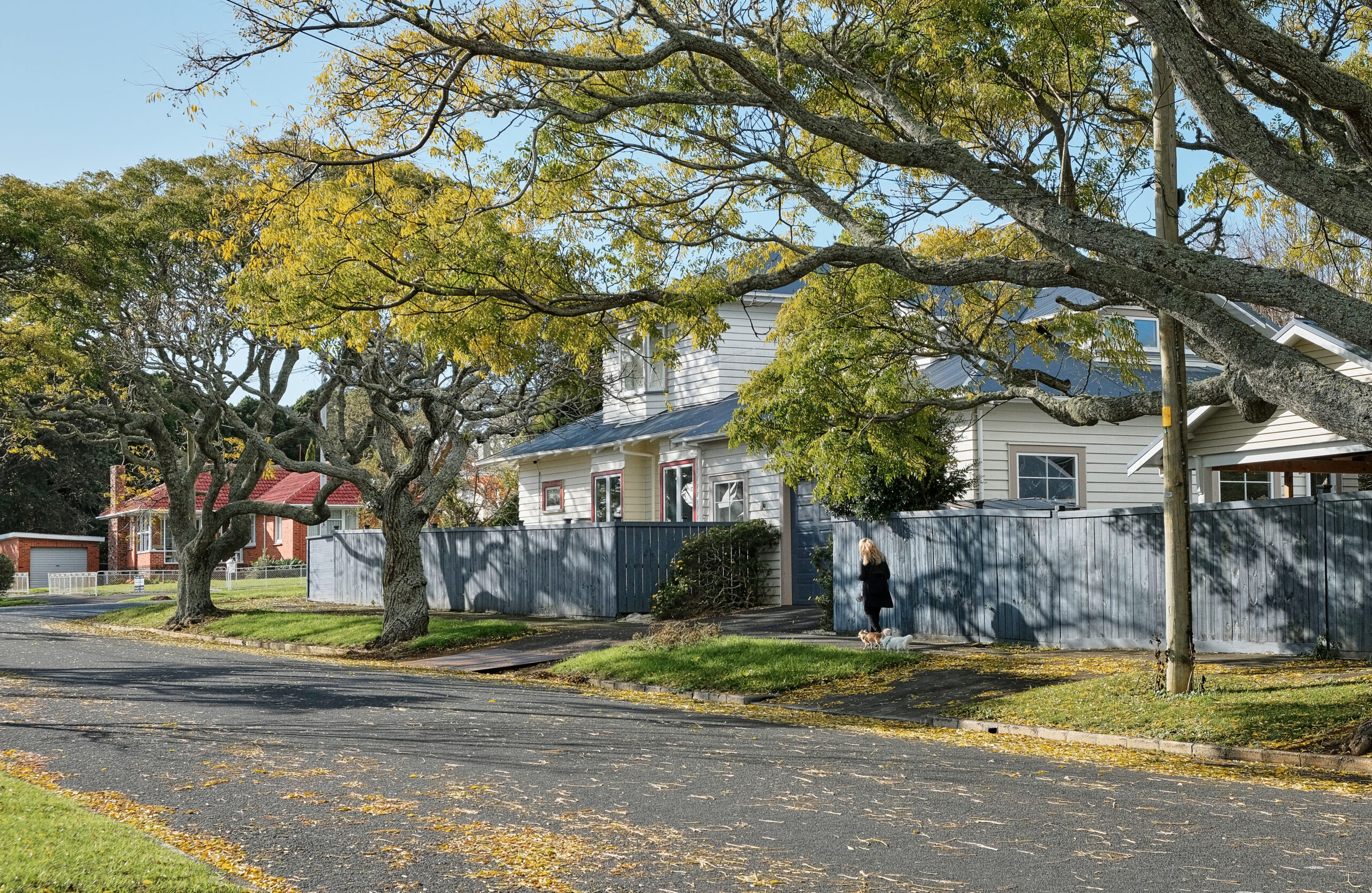This Supplement is devoted entirely to housing. I’m going to attempt to produce as long a list as possible of the factors which will be impinging on our housing markets over the coming months and longer-term as a result of the Covid-19 outbreak. There are sure to be other factors which I miss or which have yet to become apparent, and, in the absence of any experience at all of how our economy behaves during a pandemic, it is impossible to make strong statements about the relative strength of the various factors.
All we can each do is try and get our own personal feel for how things will go based on an individual balancing of the positive and the negative factors. And perhaps upon the basis of what one feels, reasoned decisions can be made regarding how to manage one’s existing property investments and what to do with regard to new purchases over the remainder of this year.
And one final comment, this downturn is unique and it is bad. But many of us have lived through some rough periods in the past, including the late-1970s and early-1980s when there were deepening restrictions on what we could do, bad government policies, near bankruptcy for the country, and the resulting need for massive changes – Rogernomics. We all learnt to adapt to those different turbulent environments which ran almost two decades from 1974-92, including the 60% sharemarket fall of 1987-We are not facing anything remotely approaching that lengthy epoch in New Zealand’s history.
Negatives
Job losses
Absence of income means inability to raise a deposit, get a mortgage, and perhaps even continue to keep the house one already owns. This is the most difficult factor to place a magnitude on.
Loss of job security
Even people in work will feel reluctant to purchase large items like cars, couches, and houses for fear of losing work and being unable to service the debt. Some may sell to go renting.
200,000 Temporary Working Visa Foreigners Not Needed
In recent years NZ has become dependent upon foreign labour. Most of these people are in low skill jobs, many in tourism and hospitality. Most will leave in the coming year. This is good for Kiwi employment. But it means housing is no longer needed for these people.
Downsizing
To improve their ability to service debt some people will seek to trade down to a less expensive property. Perhaps pleased with family experiences during lockdown some people may choose to shift one partner from full-time work to part-time or quit work altogether, in order to have more time with children. This transition may entail shifting to a less expensive house, and maybe to the regions.
Temporary Net Migration Stalling
Over the past year we saw a net migration inflow to New Zealand of 45,000 people, or about 3,800 a month and 865 a week. For the rest of this year it seems valid to assume no foreigners will be able to shift here. However, almost no Kiwis are going to leave, and those coming in on flights are more likely to be Kiwi tourists returning home than people permanently shifting back. A reduced net migration inflow this coming year is likely – how much we cannot know.
Loss of Retirement Wealth
Some retired people have seen their investment portfolios lose value. To improve their cash flow position some may downsize their house. Some may seek a reverse mortgage.
Student Apartments
Inner-city apartment rents and prices will fall in the absence of many foreign students this year, perhaps most missing next year, and fewer on a long-term basis.
Airbnb
The complete absence of tourism this year and the much lower numbers of inbound travellers for years to come will bring Airbnb dwellings back to the market for long-term rental and home ownership purposes. This is good news for the worsening availability of housing around New Zealand.
Non-Bank Lenders Downsizing
New lenders, especially out of Australia, have been expanding their activities in New Zealand over the past year. Now they are pulling back. Reduced availability of finance will affect some potential buyers
Bank Lending
While lending on houses is a low risk activity for a bank, they will pull back from the market slightly. This won’t be so much because of risk and funding (as discussed below for developers), but staffing resources. Banks will be concentrating on servicing existing clients through to the other side. They won’t have time or resources for new customers to any great degree until next year perhaps.
KiwiSaver Funds Down
Some young people who were going to use their KiwiSaver funds for a deposit were unwisely in an aggressive or balanced fund when they should have been in a conservative fund. These people will have to delay their purchase for perhaps 6 – 12 months.
Government Bias Toward Tenants
The rents freeze and no evictions for rent non-payment period extension from 14 to 60 days are understandable developments given the current circumstances. But this reminder to landlords that they have a social responsibility to their tenants will be a surprise to those who have kept themselves distant from their income source. Some will sell, encouraged also by this year’s introduction of ring-fencing and planned extension of no-cause termination periods.
Rents Will Fall
Reduced employment, visa holders leaving, students not arriving, suggest investor calculations based upon rising rent assumptions will need to be redone. This will discourage some investors whilst leaving purchasing space for the professionals and those with a long-term focus.
Pullback from Regions
Over the past four years investors have switched their focus from Auckland out to the regions. We’ve seen this before; it often does not end well with over-supplies revealed in some locations. It is likely that newly risk-averse investors will now switch back to a main centre focus, just as people seeking work will gravitate to the main centres.
Few Aspirational Purchases
When the small to medium-sized business sector does well, owners buy holiday homes, homes in wealthier suburbs, homes in elite school zones, homes on the coast. Such buying will be weak for the next 1-2 years
Positives
Baby Boom
Come December and January there is likely to be a baby boom as people engage in relations whilst in lockdown. This will necessitate some upgrading of house size for some families.
Low Interest Rates
Mortgage rates were at record lows heading into this recession, they have gone lower, and they probably will not go up to any noticeable degree for three years. This matters tremendously with regard to cash flow pressures forcing people to sell and is a key difference between the conditions which led to average house price falls during the GFC, Asian Crisis, and 1987 crash, versus now. Investors will feel encouraged to quit bank deposits and seek property yield.
Higher Long-Term Net Migration
By taking action early in our pandemic cycle, we stand a good chance of becoming virus-free whilst woe continues elsewhere. We know that events such as this which turn people’s worlds upside down can have profound impacts on long-term lifestyle choices. There is a strong possibility that many of the one million Kiwis offshore plus their partners and children will choose to live back here. More foreigners are likely to seek to become Kiwi residents also. These two factors may see a further structural rise in our annual net migration inflows which have averaged 29,000 p.a. over the past ten years.
Working from Home
Many more people will be doing this after lockdown than before, on a permanent basis. The extra time spent at home may lead some to shift further from the city centre for more space, some to the regions for more affordability, some to upgrade their house for more space and outdoor access.
Apartment Living
After being confined in an apartment for 4-8 weeks, some people may want to swap for a house.
Less Outbound Travel
Just as fewer people long-term will visit here, so too will fewer of us holiday overseas. At the moment our offshore travel has been costing $10bn per annum. Much of that in the future will be available to spend locally, perhaps on local holidays, and perhaps on a better house or even a holiday home down the track.
Young People Saving
Much attention has been made to reduced deposits for those young people who were going to use their KiwiSaver funds but who were in the wrong type of fund. But now they are realising how quickly a deposit can be built without spending $100 a week on coffee, more than that on drinking, eating out, new clothes and fancies. Given their small KiwiSaver balances, these affected young people (assuming they keep their jobs) will be back to their planned deposit size within a few months if they keep their non-spending habits up.
Building Stoppage
No new houses are being worked on for 1-2 months. This means slower supply growth
Falling Construction
Banks are going to pull back aggressively from funding new property developments over at least the coming year for the following reasons. First the riskiness of new developments has increased as presales are likely to be harder to get, and even the heightened risk of deposit forfeiture may mean some projects not started yet will not start, while others which have started will stop. Second, much as the Reserve Bank may be willing to supply whatever funding and liquidity banks need, real funding from the private sector is what matters for long-term bank sustainability and that is in shortish supply. Third, bank resources are going to be devoted to servicing existing clients for at least all this year. Banks may not have sufficient staff to assess the risk of new business to the safe degree which they would like.
Absence of a Pre-Recession Debt Binge
Household debt rose just 40% in the past five years versus 80% in the five years leading into the GFC, and 115% leading into the 1997/98 Asian Crisis. The presence of LVRs will have also kept the riskiness of mortgage lending down.
We Know This Recession is Temporary
We know some sectors have essentially gone, and the downturn this Autumn – Winter will be deep. But we can reasonably believe a vaccine will appear at worst 16 months from now if the scientists are correct. Before then we are likely to be virus-free. We know from China’s example that rigidly-enforced lockdowns do work. The city of Wuhan is slowly opening up again after two months of lockdown.
The Support Measures are Huge
There is simply nothing else in history which compares with the fiscal and monetary guns being brought to bear on the spiralling weakness which would otherwise play out in very bad degrees from Covid-19.
Mortgage Holidays
Anyone under stress can put their principal and/or interest payments on hold for up to six months. After that many will find their debt is still too burdensome and politely forced sales are likely to rise. But the spiral which might otherwise have developed is being avoided.
Working Visas
As most of the 200,000 people here on temporary work visas leave in the coming year or so, and jobs will have to be offered to Kiwis and not automatically rolled over into new visa holders, employment will improve for Kiwis.
Labour Shortages
There is friction in labour markets, which means it can take some time for people laid off in one industry or location to find work elsewhere. There will be some training required, but eventually the shortages of labour in many sectors will attract Kiwis and help soak up some of the unemployed.
Preference for Property
Just as Baby Boomers avoided shares following the 1987 crash and decimation of their wealth, so too will a new generation perhaps look more favourably at property as a long-term investment than they did before. Then again, the index fall back then was 60% versus only about 24% this time around. And this time there’s no debt funding of shares, or share clubs.
Shortages
We entered this turbulent period with shortages of property in our main centres – but probably oversupplies in many regions, especially now. This main centre shortage means not just a physical shortage of property, but a shortage of listings also, Given the low interest rates and mortgage holiday it is extremely unlikely that listings will massively surge when our economy opens up again.
Supplements 1, 2 and 3 can be found here
http://tonyalexander.nz/publications.php
This publication has been provided for general information only. Although every effort has been made to ensure this publication is accurate the contents should not be relied upon or used as a basis for entering into any products described in this publication. To the extent that any information or recommendations in this publication constitute financial advice, they do not take into account any person’s particular financial situation or goals. We strongly recommend readers seek independent legal/financial advice prior to acting in relation to any of the matters discussed in this publication. No person involved in this publication accepts any liability for any loss or damage whatsoever which may directly or indirectly result from any advice, opinion, information, representation or omission, whether negligent or otherwise, contained in this publication.


